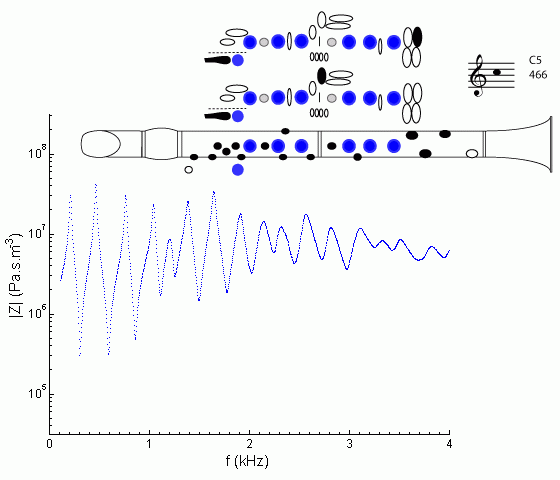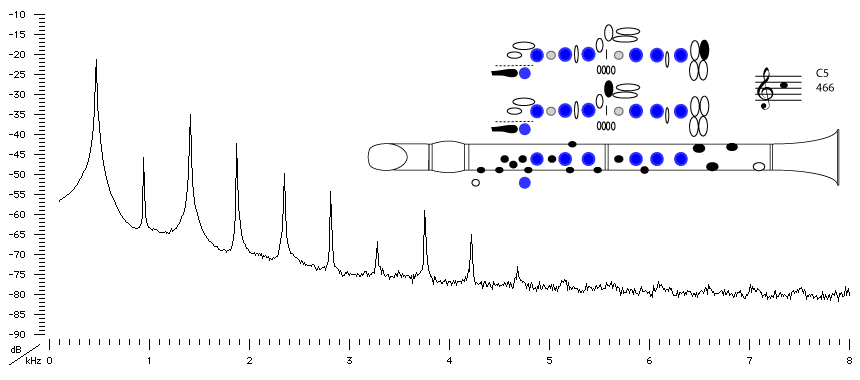| Acoustics of the clarinet |
Bb clarinet |
C5 |

|
Fingering Acoustic schematic Non-specialist introduction
to acoustic impedance Notes are the written pitch. |
Note how similar this spectrum is to that for F3. (Of course, the clarinet overblows a 12th.) The only substantial difference is the reduction in the first peak. The purpose of the speaker key is just that: to destroy the fundamental resonance so that the instrument will not 'drop down' to the lower register. See register hole for details.
At frequencies below about 1.1 kHz, this curve looks rather like that for B4, but raised in frequency because the tube is effectively shorter because of the open tone hole (see tone holes). At higher frequencies, however, the waves propagate past the open tone hole with greater ease, and the situation is more complicated, which gives rise to the irregular shape around 1.2 kHz. At the highest frequencies shown here, the waves 'hardly notice' the open tone hole and the curve is very much like that for B4, and not raised in frequency. (See cut-off frequencies.)
For a general discussion of the clarino register, see the description on B4.

Sound spectrum
of a Bb clarinet
played using fingering for C5.
For more explanation, see
Introduction to clarinet acoustics
|
Contact:
Joe Wolfe
/ J.Wolfe@unsw.edu.au |